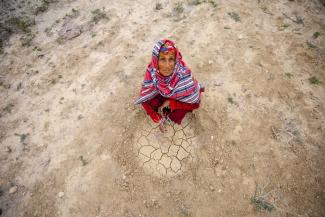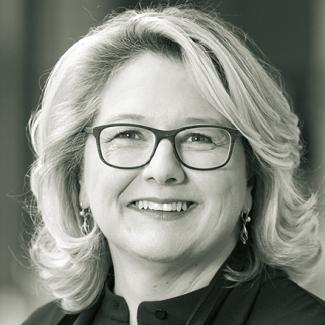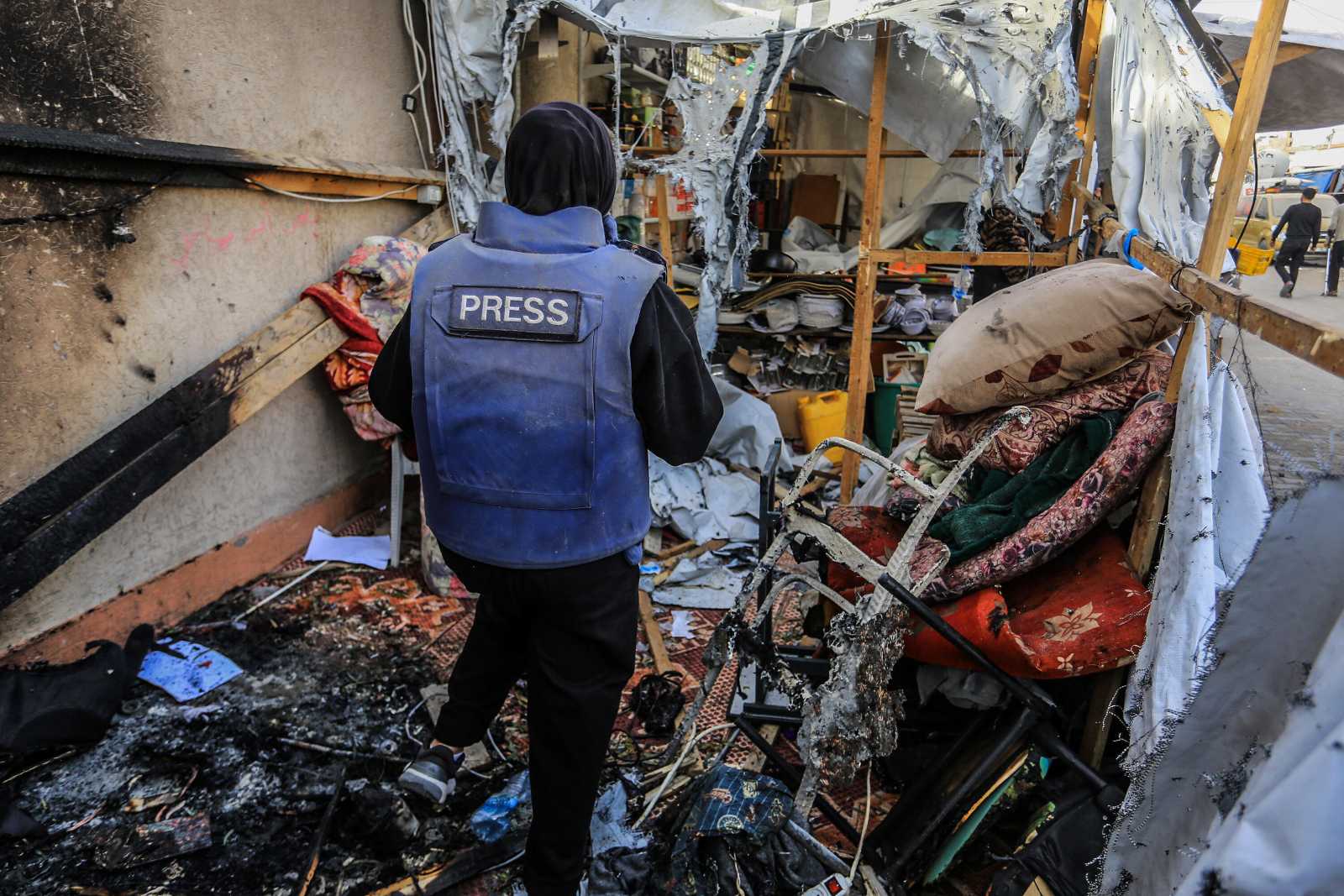Fighting poverty
Social protection improves food security

Russia’s war of aggression, Covid-19 and the climate crisis, too, with its extreme weather events like this year’s fifth back-to-back summer of drought and the flood disaster last year, are having an impact on daily lives in Germany and are tangible reminders of the fragile nature of security. And here I mean not just security in its traditional dimensions of domestic and external security but also security in a broader sense. I am thinking of affordable food and of broad access to health care. Attainments that we all thought were solid, suddenly seem shaky. For many people, it is becoming more and more difficult to lead a self-determined life. The situation is made worse because these various crises are mutually exacerbating.
Germany may be feeling an impact, yet it is much worse for the often far more vulnerable societies in the global south. After years of progress, hunger rates have been increasing again since 2017. In 2021, up to 828 million people were suffering hunger; that is almost one in ten people worldwide. Roughly 30 % of the global population – about 2.3 billion people – did not have reliable and safe access to adequate and sufficient food. At the same time, 53 % of the global population – about 4 billion people – have no access to social protection. Each and every one of these people must rely either on themselves alone or on their social network, such as family, when faced with unemployment, maternity, disability or accidents at work. In Africa, as many as 80 % of the people are without social safety nets (regarding basic issues of social protection, see Markus Loewe on www.dandc.eu).
Four reasons
There are good reasons to take a joint approach to food security and social protection in future:
- First of all, the more resilient a society is, the better it is equipped to meet crises – anywhere on the planet. Sufficient and high-quality food is essential for resilience. But social protection is also a way to enhance resilience in a crisis or even stop it happening. It enables people to lead a decent life even in times of hardship. And it also makes them more able to adapt and to respond to shocks, as in the case of extreme weather events, for instance, which lead to harvest losses or food price volatility.
- Second, it is rural areas with breeding and crop growing activities that hold the key to food security. In many countries of the global south the agricultural sector provides the most important labour market and is the biggest employer and hence vitally important for many people. Promoting social protection in a sector that is as wide-ranging as agriculture helps society as a whole because it helps stabilise the overall social fabric and can serve as a model for other sectors. However, the challenges are especially pronounced in agriculture because people there are exposed to especially big risks. These risks are not only a threat to food security for the rural communities themselves, they often compromise food supplies for the rest of the population as well. Climate change can increase the risks even more. Here is an example: A women loses her farm’s entire harvest in a drought. The loss affects her as a subsistence farmer and her family. But it may also mean that she loses additional income she might have earned from selling her produce. She then lacks the money to buy seed for the next season. If a social safety net for drought risks is in place – ideally ranging from financing to payment mechanisms – help can be provided swiftly. And the next harvest is secured.
- Third, social protection promotes rural development. Many smallholders lack the financial means to take risks and invest in innovative production methods. Recipients of social-protection benefits can spend money on local goods and services, thus increasing demand. Every euro invested in social benefits generates up to 1.7 euros in additional economic activity.
- Finally, a basic idea of social protection is solidarity: leaving no one behind and targeting all of society. That is why social protection also facilitates social cohesion. It is often women who are responsible for feeding their families in addition to doing unpaid work in the fields or household chores and taking care of the children.
Women in our partner countries often work in the informal sector and hence do not benefit from (existing) social security schemes, which are almost always tied to formal employment. Going forward, we need to ensure that we design social-protection systems that take account of the daily realities and needs of women and girls. In this work, we also have to actively address social norms, gender stereotypes and discriminatory power structures in society. That way the introduction of social protection schemes can also have a gender-transformative effect. This is urgently needed to achieve more gender equality in the sense of comprehensive social equality – for which I am working through our development cooperation.
Global Shield
Delivering greater equality in the spirit of a global just transition is also our motivation behind our efforts to set up a Global Shield against Climate Risks which the Federal Ministry for Economic Cooperation and Development (BMZ) is advancing. Social protection has a key role to play here, complementing climate risk finance and private insurance solutions. The Shield can help particularly vulnerable people – including many women – for instance in the case of droughts and floods. There can be no protection against crises without social protection (on www.dandc.eu, Stefan Beierl has elaborated the need for social protection in the climate crisis).
Germany is pursuing the goal of human security through its development policy, because security is about more than the absence of danger to life and limb. Human security is about people being able to meet basic needs such as adequate food and nutrition and lead a self-determined life. Social-security systems can reach even the poorest of the poor. That is why social protection is also a key-building block in the fight against hunger and poverty. It guarantees food security in times of crisis and is a shield against downward spirals.
That is why I am making it a priority to assist partner countries in setting up and expanding social-security systems. We are doing this not on our own but in collaboration with multilateral and bilateral partners. We made a start this year as part of Germany’s G7 Presidency. Our aim is to increase the number of people with social protection by one billion between now and 2025.
Coordinated approach
We are working on coordinated financing mechanisms, joint country analyses and monitoring and coordinated support for our partner countries in order to scale up best practice examples and approaches. We have discovered that social-security programmes have a lot of potential not only to fight poverty and strengthen crisis resilience but also to contribute significantly to food security more generally – for instance, if benefits such as cash and in-kind transfers are tied to participation in health and nutrition counselling or are earmarked for buying food.
Many countries, including in the global south, are financing their social-protection schemes themselves. Germany is using its development cooperation (in close consultation with other donors) to assist its partner countries with, in particular, maintaining their social-security systems in times of crisis. A critical factor is tailoring the solutions to local conditions, because the needs of partner countries vary, as do their capacities to provide their own inputs.
It is important to us to harmonise our action, for instance with the development banks or UN organisations. In Rwanda, for example, Germany is advancing structural reforms in already existing social-security systems based on a World Bank programme that provides budget support. These reforms are aimed at increasing the number of beneficiaries and improving the performance of administrative and implementing structures, for instance via a new social register to provide better records on who is entitled to benefits. An additional technical cooperation component ensures that the investments are sustainable, for instance thanks to additional local skilled staff and training for existing staff.
Social safety net programmes help to overcome the big challenges of our time – the impact of climate change, hunger, inequality and preventing pandemics. That is why I lobbied at the World Bank meeting last October and again at the UN climate conference in November for strengthening social-protection systems. In addition, in order to advance the issue of social protection and get even more partners on board, next year the BMZ will be convening its first international conference on this topic. Social protection is a human right. Through our policymaking we want to give it more visibility.
Svenja Schulze is Germany’s federal minister for economic cooperation and development.
www.bmz.de

















